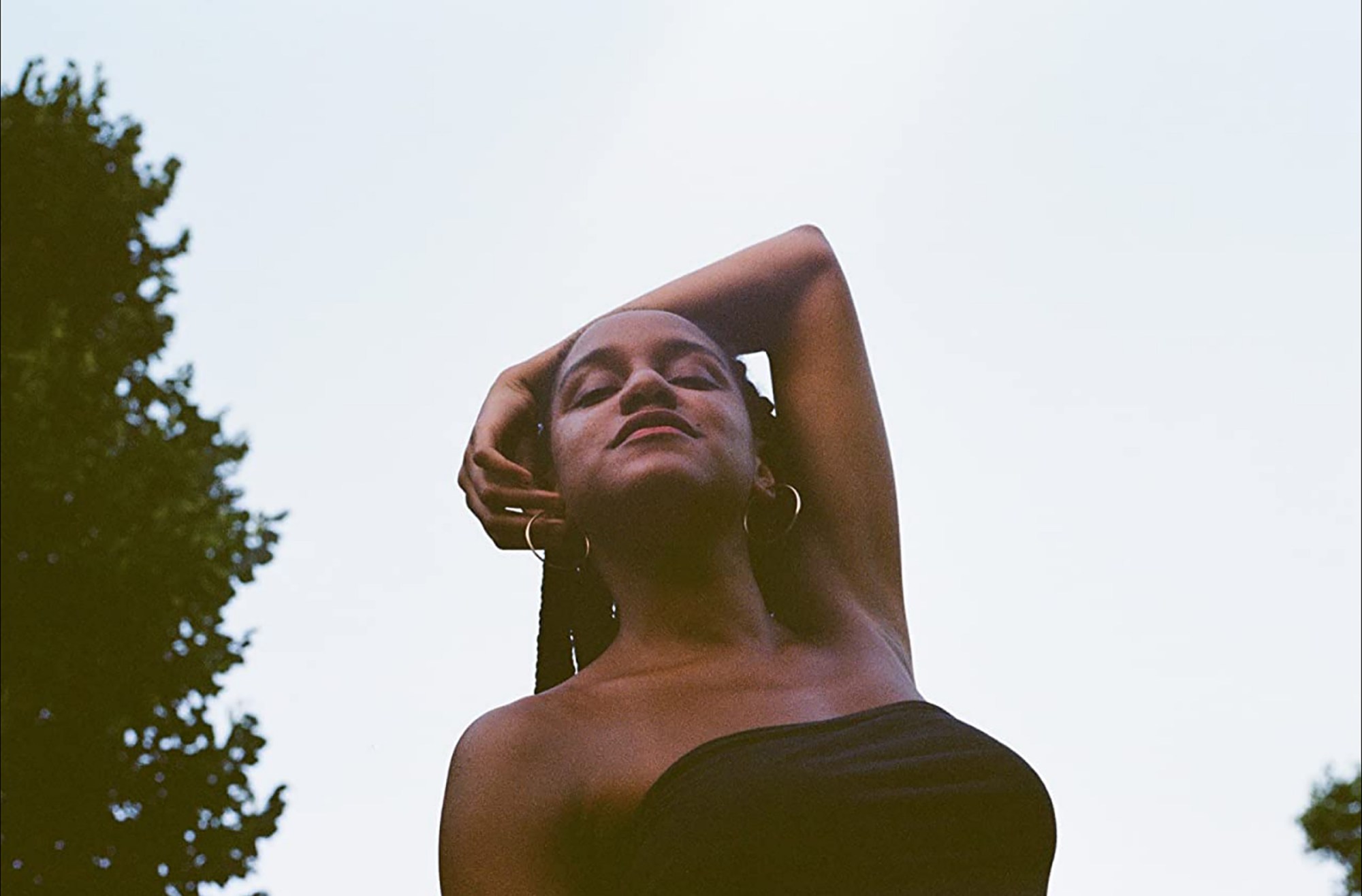
- Festivals
2021 TIFF Notes: Docs: “Beba” (2021)
An autobiographical self-portrait and the feature film debut of Rebeca Huntt, Beba generated considerable buzz ahead of its world premiere at the Toronto International Film Festival. A defiantly uncommercial filmic essay that sifts through questions of mental health, family history, racial identity, and general late-Millennial occupational uncertainty from the perspective of a young Afro-Latina woman of Dominican and Venezuelan parentage, this documentary is unlikely to connect with a mainstream audience; it honestly feels like an act of cinematic self-care as much as anything else. But for adventurous industry-watchers looking out on the horizon for the type of filmmaker who might bring to bear an idiosyncratic stamp on challenging, left-of-center fiction material, Beba might well represent a germinating seed.
Taking its title from its subject’s nickname as a baby, the film finds its roots in Huntt’s adolescence growing up in a one-bedroom Bedford-Stuyvesant apartment, the youngest of three siblings. An inventorying of some of the feelings born of this cramped existence – her at-odds relationship with her mother, and more – eventually gives way to segments on Huntt’s time at Bard College, a couple of romantic relationships, and her peripatetic work life. The movie casually alludes to violence as an accepted part of her family history (her sister Racquel giving Huntt her first joint at 10 years old, to apologize for choking her out), but doesn’t drill down into a lot of detail, and additionally fails to unpack much in the way of feelings and/or differing perspectives on these mentioned events.
A UnionDocs Collaborative Fellow in 2018, Huntt has worked as an archival producer on various documentaries, which doubtlessly helped inform her collagist sensibility on display here. Where Beba connects most distinctively is as a work of singular vision and confidence. It has the stamp of auteurist certitude and exudes a type of poetic rawness, even if Huntt’s camerawork and many captured moments (most embodied in an extended campfire sing-along) feel almost randomly selected. That can sometimes very much be the point – to sink into quotidian details which carry an accumulated weight. Here, though, Huntt and editor Isabel Freeman’s construction unfortunately too often feels aimless, failing to meaningfully contribute to and craft a whole that is greater than the sum of its parts.
Huntt sometimes embraces hyperbolic statements (an assertion that a seventh birthday trip to Disney World was the last time her father spoke to her brother Juan Carlos) and generally fails to follow up on major sources of conflict in a way that would offer any type of conventional catharsis for a viewer. She also includes an anecdote, about missing a job interview because her brother jumped in the shower before her, which lands so differently from its seeming intent that it’s hard to believe.
Many of the most striking moments in Beba stem from or directly lay in Huntt’s prose, which gives a charged passion to the voiceover that, more than anything else, serves as a guide for viewers. “I carry an ancient pain that I struggle to understand,” says one passage. “I use it to hurt those closest to me. Every one of us inherits the curses of our ancestors. But we may put an end to this cycle by going to war with ourselves.” One wishes there was a more refined and focused energy applied to this text, because it is here, in moments of more clear-eyed self-diagnosis, that viewers most feel a connection to Beba.
At the end of her film, Huntt plants a declarative flag, stating that from her mother’s side she inherited passion, resilience, and crippling delusion, and from her father’s side she inherited courage, ambition, and abusive rage. Beba, however, is a movie that nibbles around the edges of this unearned diagnosis. It does so in an artistic way but doesn’t have itself quite figured out yet. A generous reading would say that maybe that’s part of the point, of course – that in the churning confusion of young adulthood, and stumbling towards one identity, unsettledness and radical ambivalence is the mark of the most honest and interesting artists. If that’s the case, Huntt will have a rich future.